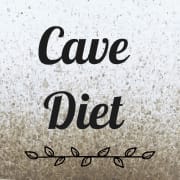In today’s fast-paced world, fad diets and quick fixes can often seem like the easiest path to weight loss or better health. However, the truth is, the most effective way to achieve lasting health and wellness is through a lifestyle diet—a sustainable, balanced way of eating that becomes an integrated part of your everyday routine.
A lifestyle diet is not about restrictions or temporary fixes. Instead, it’s about making mindful, health-conscious choices that nourish your body, enhance your overall well-being, and fit into your unique lifestyle. Let’s dive into what a lifestyle diet is and how to incorporate it for lasting benefits.
What is a Lifestyle Diet?
A lifestyle diet focuses on long-term, sustainable habits rather than extreme or short-term dieting. It’s about making food choices that support your overall health, energy, and well-being while fitting into your daily routine. Unlike traditional diets that focus solely on weight loss, a lifestyle diet takes a holistic approach, considering physical health, mental well-being, and environmental impact.
A lifestyle diet doesn’t come with strict rules or timelines. Instead, it empowers you to listen to your body, nourish it with nutrient-dense foods, and find balance in your eating habits. It’s flexible and adaptable, meaning it can evolve with your changing needs and preferences.
Key Principles of a Lifestyle Diet
While there is no one-size-fits-all approach, there are several key principles that are commonly found in lifestyle diets. Here are a few that you can incorporate into your life:
1. Focus on Whole, Nutrient-Dense Foods
A lifestyle diet prioritizes whole, minimally processed foods, including fruits, vegetables, lean proteins, whole grains, healthy fats, and legumes. These foods are rich in essential nutrients, including vitamins, minerals, antioxidants, and fiber, which support your immune system, improve digestion, and promote overall vitality.
- Eat the rainbow: Aim for a variety of colorful fruits and vegetables to get a wide range of nutrients.
- Healthy fats: Incorporate fats from sources like avocados, nuts, seeds, and olive oil for heart and brain health.
2. Practice Portion Control
A lifestyle diet is not about restriction, but it does involve mindful eating. This means listening to your body’s hunger and fullness cues and avoiding overeating.
3. Incorporate Regular Physical Activity
A healthy diet goes hand-in-hand with regular physical activity. Exercise helps support a healthy metabolism, build strength, and improve overall fitness. It doesn’t have to be intense – find activities you enjoy and make them part of your daily or weekly routine.
- Variety is key:
- Include both cardio (like walking, cycling, or swimming) and strength-training exercises (such as weight lifting or yoga) for a well-rounded fitness plan.
- Consistency over intensity:
- It’s better to commit to regular, moderate activity than to push yourself too hard with sporadic, intense workouts.
4. Prioritize Hydration
Water is essential for virtually every function in your body, from digestion to detoxification to energy production. Drinking enough water throughout the day helps maintain your body’s balance and supports your metabolism.
- Set a goal:
- Aim to drink at least eight 8-ounce glasses of water per day (this can vary based on individual needs).
- Herbal teas:
- Herbal teas, such as green tea or chamomile, can be hydrating and offer additional health benefits.
5. Listen to Your Body
A key principle of a lifestyle diet is tuning into your body’s signals. Rather than following a set of rigid rules, focus on how different foods make you feel. If a certain food leaves you feeling bloated or sluggish, it might not be the best fit for your body. On the other hand, if eating vegetables and whole grains makes you feel energized and clear-headed, those are the foods to prioritize.
- Food journaling: Keep track of what you eat and how you feel afterward to better understand your body’s response.
- Respect hunger cues: Eat when you’re hungry, and stop when you’re satisfied, not overly full.
6. Enjoy Occasional Treats
A lifestyle diet is about finding balance. While the majority of your meals should be nutrient-dense, it’s important to allow yourself occasional indulgences. Enjoying your favorite treats in moderation helps prevent feelings of deprivation and ensures that food remains a source of pleasure rather than stress.
- Mindful indulgence: Rather than feeling guilty about enjoying a piece of cake or a glass of wine, savor the experience and enjoy it in moderation.
- Healthy swaps: Craving something sweet? Try swapping out sugary snacks for healthier alternatives, like dark chocolate or homemade energy bites.
How to Implement a Lifestyle Diet
Adopting a lifestyle diet doesn’t require drastic changes overnight. It’s about gradual, positive adjustments that fit into your daily life. Here’s how you can start:
- Plan your meals:
- Set aside time each week to plan your meals and snacks, making sure they include a balance of whole foods.
- Cook more at home:
- Preparing meals at home allows you to control what goes into your food and ensures you’re eating whole, fresh ingredients.
- Build a support system:
- Whether it’s through family, friends, or online communities, find a group that encourages healthy habits and holds you accountable.
- Set realistic goals:
- Focus on making small, attainable changes. For example, aim to eat more vegetables at lunch or switch from sugary drinks to herbal tea.
The Long-Term Benefits of a Lifestyle Diet
One of the most powerful aspects of a lifestyle diet is that it’s designed for long-term success. By focusing on sustainable, enjoyable changes, you’re setting yourself up for a lifetime of better health. Over time, you’ll likely experience:
- Improved energy levels and stamina
- Enhanced mental clarity and mood
- Better digestion and gut health
- Strengthened immune function
- A positive relationship with food
Conclusion
A lifestyle diet is not just another diet—it’s a way of living. By prioritizing balanced, whole foods, regular exercise, and mindful eating, you can create a sustainable approach to health that fits seamlessly into your life. Remember, it’s about making gradual changes, embracing balance, and celebrating the small wins along the way.




